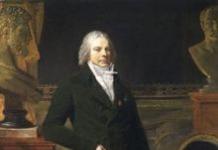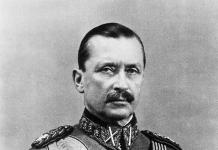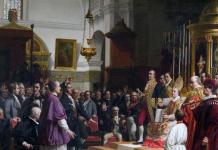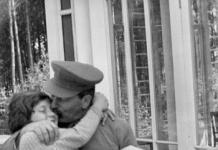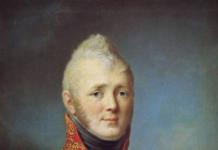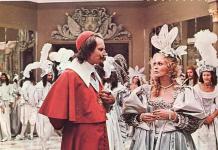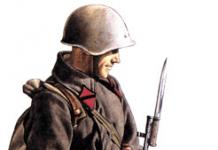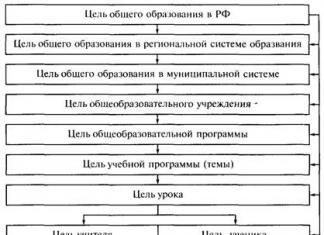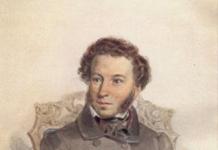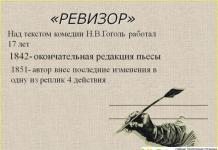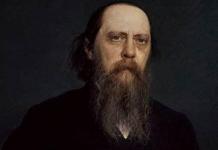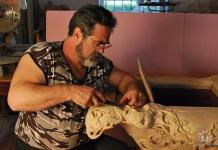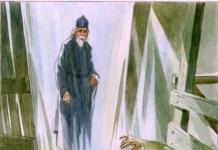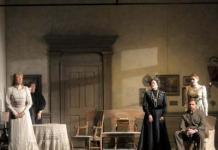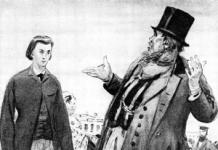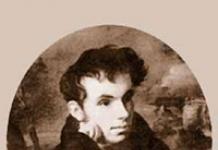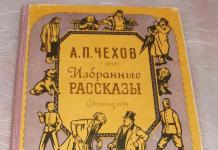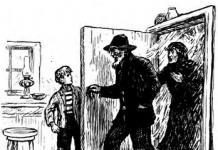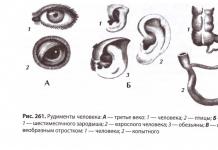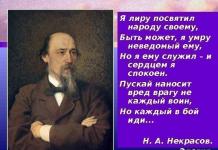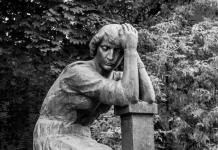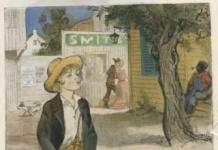Epic "Sadko" summary for reader's diary You can make up your own from the options presented to get a better estimate.
Epic "Sadko" summary for the reader's diary
"Sadko" tells the story of a young harpist Sadko, who at first lived in poverty, and then became rich thanks to the sea king. But when Sadko got rich, the sea king took Sadko to his bottom and was not going to let him go. But thanks to the prompts of Nikolai Mozhaisky, Sadko was able to find himself in the wild, in addition to his beloved girl.
Bylina "Sadko" very briefly
Sadko-young gusler from Veliky Novgorod. Sadko was invited to honest feasts, where he played the harp and earned a living.
But for 9 days now he has not been invited to feasts and he was very sad. He went to Ilmen-lake. He played the harp and suddenly the king of the sea appears. He thanked Sadko for his playing the harp and taught him how to get rich. He argued with the merchants that there were fish with golden fins in the lake. Sadko won the argument and became rich.
After that, the harpist arranged a feast. Suddenly, one merchant said that: since Sadko is so rich, let him buy all the goods in Novgorod. He agreed, and if he loses, he will give each merchant thirty thousand rubles.
On the first day he sent servants and went to buy all the goods himself. On the second day, even more goods appeared. And on the third day, Sadko realized that he could not buy all the goods. So Sadko lost the argument and gave the merchants thirty thousand rubles each. He built ships, loaded goods and went to distant countries.
When he returned to Novgorod, the sea raged. Sadko thought that the Sea King was angry with him and decided that he needed to give the victim. Saying goodbye to his servants, he went down into the water.
Sadko saw the Sea King in the depths of the ocean. He asked the harpist to play the harp and started dancing. The king liked his game so much that he wanted to marry Sadko to one of his daughters. Suddenly, Mikolya Mozhaisky (a holy man) appeared in front of Sadko and prompted Sadko to choose the girl Chernavka as his wife. He did just that. Then together they went to land, where they were met by the whole of Novgorod. Sadko no longer swam in the sea.
Epic "Sadko" summary
Sadko was a poor gusler. He earned his bread by playing at feasts. But for nine consecutive days, Sadok has not been invited to any feast. Then he went to Ilmen Lake and began to play on the empty shore. Suddenly, the king of the sea himself appeared from the lake, who announced that he was “consoled” by the game of the harpman and wanted to reward him. Having been instructed by the sea king, Sadko went to Novgorod and bet with three rich merchants, claiming that there was a wonderful “fish-gold feathers” in Ilmen Lake. Having won the mortgage, Sadko began to trade and became rich.
Once, at a feast, Sadko boasted that he would buy up all the goods in Novgorod - “good and bad”; Indeed, for two days in a row Sadko bought up all the goods, but on the third day, when Moscow goods were brought up, Sadko confessed that he could not buy up goods "from all over the white world." He gave 30 thousand to merchants.
After that, Sadko loaded 30 ships with goods and went to trade overseas. On the way back, the ships suddenly stopped in the middle of the sea, and a storm broke out. Sadko realized that it was the king of the sea who demanded tribute, threw barrels of gold, silver and pearls into the sea, but in vain; then it was decided that the king of the sea requires a living head. The lot fell on Sadko, who, taking the harp with him, ordered himself to be lowered into the sea on an oak plank. After that, the ships moved. Sadko fell asleep on his board, but woke up already at the bottom of the sea, in the chambers of the sea king. He demands that Sadko play the harp. To the sounds of the harp, the sea king began to dance, as a result of which the sea was agitated, the ships began to sink, and many people died.
Through the prayers of those in distress, Saint Mykola of Mozhaisk (Nicholas the Wonderworker), the intercessor of water travelers, came to Sadko and taught him how to deal with the sea king. Sadko acted in strict accordance with the instructions: first he stopped the game, breaking the strings of the harp, and when the sea king demanded that Sadko marry a sea maiden, he chose the last one out of 900 contenders - the “maiden Chernavushka”. After the wedding feast, Sadko "did not commit fornication" with his young wife; falling asleep, he woke up already on the ground - on the steep bank of the Chernava River near Novgorod. At this very time, he saw that his ships were approaching along the Volkhov. In gratitude for the salvation, Sadko built a church to Mykola Mozhaisky, and he never went to the “blue sea” again.
The epic "Sadko" is one of the pearls of Russian folk epics of the Novgorod cycle. Its main theme is a colorful description of the commercial merchant life of Novgorod and the fantastic wanderings of a merchant-guslar along the depths of the sea.
The plot of the epic is built in conditional three parts, each of which has its own inherent self-sufficiency. And the work itself has a pronounced dramatic conflict of a historical nature.
Story

According to historians, the first basis of the ancient epic about Sadko was a song about a Novgorod merchant, whose name was Sodko Sotynets. He was mentioned in the Novgorod chronicle of 1167 as the builder of the Borisoglebskaya church in Novgorod. It is noteworthy that the prototypes of the main characters - Sadko the gusliar and the sea king, are found in epic narratives. different peoples- Greek, Finnish, Estonian, Kirghiz and Old French legends.
Analysis
Description of the artwork

The action takes place in rich and prosperous Novgorod. The young singer-gusler Sadko pleases numerous Novgorod merchants with his sweet-voiced singing. At one of the feasts, realizing that no one is listening to him, the saddened singer goes to the shore of Lake Ilmen. Having poured out his soul in a beautiful, but at the same time full of sadness song, Sadko excited the sea king with his singing, who thanked the harpman with the opportunity to gain wealth. Having won a dispute with three merchants about the presence of fish with golden feathers in Ilmen Lake, Sadko becomes a rich man and multiplies his property many times over within twelve years.
One day, Sadko the merchant embarks on a long trading journey, loading thirty ships with untold riches. A sudden strong storm forces Sadko to try to appease the sea king, but the lot shows that the sea ruler does not need wealth, he needs a sweet-voiced harp singer. Sadko pleased with his game from morning to evening the king and his entire retinue, he was promised untold riches, but dreams of his beloved Novgorod turned out to be stronger than the diabolical temptation of the underwater world. Thanks to love for the sea beauty Chernavushka and the help of the famous Saint Nicholas the Wonderworker (Mozhaisk), Sadko returns to his hometown, arranges a feast and builds a church in the name of the saint who saved him.
Epic quotes

“And how about something, Sadku, boast? And I don’t have a lot of uncountable gold treasury, And I don’t have as a beautiful young wife, And as for me, Sadka, I only have one thing to brag about: In Ilmen and like in a lake And you eat fish like golden feathers, after all "
“And how hello, rich merchant, Sadko and Novgorod! And how much you traveled on the sea, And how you didn’t pay tribute to the sea king in the blue sea, And now he himself has come to me all and in gifts.
“And who boasts of something at a feast: And another boasts like an uncountable golden treasury, And another boasts of a good horse, And another boasts of strength, good luck; And how smart now, how A boasts of his old father, old mother, A and a crazy fool, how he boasts, And how he boasts and how his young wife ”(The narrator)
main characters
Talented young singer-gusliar. Sacrifice himself during a storm, thereby saving the lives of his squad. In this act, the Christian spirit of the hero is manifested along with high morality and patriotism.
The image of the lord of the seas is very ambiguous, it combines both power and destructive power, as well as love for the talent of the singer-gusler Sadko. This character first acts as a benefactor, and after a lapse of time - an enslaver of the singer, while he does not understand what is more precious for Sadko than earthly life in hometown there is nothing.
The structure of the work
The plot-compositional construction of the epic includes three self-sufficient parts. According to Belinsky, the dramatic conflict of a historical nature is clearly expressed in the work. The uniqueness of the work is a combination of three epics of different times of writing, ranging from the early pagan (the image of the good sea king) and ending with the Christian (the image of St. Nicholas the Wonderworker). The choice of the protagonist is also unusual - not an epic hero, but a poor talented singer-gusliar.
Final conclusion
The bylina "Sadko" is a unique monument of Russian culture, which expresses the entire historical and patriotic essence of the image of the wandering gusli singer, who defeated both merchants and the seductive temptations of fantastic underwater life.
The sanctity of the image of his native Novgorod is what turns out to be above all for Sadko - a patriot and a Christian. The bylina is of particular historical value - it shows with great truthfulness the everyday life of the Novgorodians in all its manifestations.
The story of the amazing journey of the Novgorod gusli Sadko to the underwater kingdom. Having delighted the ear of the Sea King, Sadko becomes a rich merchant and a happy family man.
Can you write a shorter content? Write options in the comments!
Very briefly
Sadko lives in Nizhny Novgorod, and earns his living by performing at feasts. Once the boyars drive the musician away, and he goes to the shore of Lake Ilmen. The sad Sadko plucks the strings of the harp, and his playing attracts the Sea King. Having learned about the sorrows of a talented harpman, he gives him advice - to bet with the merchants that he will catch a rare fish with golden feathers from the lake.
With the help of the lord of the sea, Sadko easily wins the argument and receives a big win. He becomes an eminent Novgorod merchant. One day, at a feast, Sadko again argues with the merchants, but loses, and loses almost all his money. With the remaining savings, he buys ships, loads goods on them, and begins trading with other countries.
On the way home, the ships are overtaken by a strong storm. To appease the Sea King, sailors throw a barrel of silver into the waves, then a barrel of gold. But the elements continue to rage. Then the sailors cast lots to whom to sacrifice themselves to the Sea King. Sadko is drawn twice. The merchant finds himself in the underwater kingdom, where he plays the harp. Mikola Mozhaisky gives advice to the merchant on how to behave properly in order to return home, as well as what kind of wife to choose.
Events in the epic unfold in the city of Novgorod. It breaks up into two parts (Sadko receives wealth and Sadko from the Sea Tsar). The protagonist - gusler Sadko. At the beginning of the epic, he was neglected by the Novgorod boyars, they stopped inviting him to feasts. Offended, Sadko goes to Ilmen Lake, sits down on the "white-flammable stone" and begins to play "guselki yarovchaty". The Sea King liked his game:
As soon as the water stirred in the lake, The king of the sea appeared, He left Ilmen from the lake, He himself spoke these words: “Ay you, Sadko Novgorodsky! gentle game. one
The Sea King decided to help Sadko, to give him untold wealth. He ordered him to bet with Novgorod merchants that he would catch fish in the lake - a golden feather. The king will send this fish to Sadko in nets.
Guslyar did just that and won three shops of red goods in a dispute with merchants, got rich, erected magnificent chambers, decorating them with marvelous paintings:
Sadka arranged everything in a heavenly way: The sun is in the sky and the sun is in the chambers, The month is in the sky - and the moon is in the chambers, The stars are in the sky - and the stars are in the chambers. 2
Sadko "invited distinguished guests to an honorable feast," who ate at the feast, got drunk and boasted of everything. Sadko boasted of buying up all the goods in Novgorod, bet richly with him. shops, in the morning more and more brought from all over Russia appeared in them. And Sadko realized that he was not a rich Novgorod merchant - richer than his glorious Novgorod. And if at the beginning of the epic the people's consciousness was on the side of the poor gusler, that he is richer and stronger than the whole trading city, deprived of the sympathy of the people. Bylina forces him to recognize the victory of Novgorod. It clearly expresses the idea of the trading power of the great city of northern Russia.
In the second part of the epic, Sadko, a rich merchant, equips ships and sets off with his comrades to trade overseas:
Strong weather converged on the blue sea, The blackened ships stagnated on the blue sea: And the wave beats, the sails tear, Breaks the blackened boats; And the ships do not move from their place on the blue sea. 3
So the landscape is introduced into the epic. The ships stood on the sea - the Sea King does not let Sadko in, demands a ransom from him. At first, shipbuilders try to pay off with a barrel of pure silver, red gold, and everything beats with a wave, the sails break, and "the ships do not move from their place on the blue sea." Sadko guesses that the Tsar of the Sea demands "a living head in the blue sea." Three times they cast lots, who should go to the Sea King. And no matter how bad Sadko was, the lot fell on him. Taking only the harp, Sadko rushes into the depths of the sea.
The image of the underwater kingdom in the epic is real, the landscape is realistic:
In the deep blue sea. Through the water I saw the red sun baking, The evening dawn, the morning dawn. Sadko saw: in the blue sea there is a white-stone chamber ... 4
Before us is not fantasy, but a certain amount of conventionality. The king of the Sea himself is also depicted. In the epic, only one detail of his portrait is given: "the king's head is like a heap of hay." The singers use the technique of hyperbolization: the head of the king is compared with a pile of hay, which indicates its significant size and introduces an element of comedy.
How Sadko began to play in the guselki yarovchata, How the king of the sea began to dance in the blue sea, How the king of the sea began to dance. Sadke played for a day, others played, Yes, Sadke and third played, And the king dances in the blue sea. 5
Grateful for the fun, the Sea King began to persuade Sadko to marry one of his thirty daughters. Meanwhile, in the blue sea, the water sways, ships crash, righteous people drown.
An Orthodox person in reality, in search of deliverance from misfortunes, always turns to Christian saints, which is also reflected in the bylina: "the people began to pray to Mykola Mozhaisk." It is no coincidence that the image of the Christian intercessor Mikola, the patron of all seafarers and sailors, is introduced into the epic. This shows the general Christian idea of Russian folklore:
The saint appeared before Sadko on seabed: He turned around - Sadka Novgorodsky looks: A grey-haired old man is already standing. Novgorodsky said to Sadka: "I have a will not of my own in the blue sea, Ordered to play guselki yarovchaty." The old man says these words: "And you pluck the strings, And you break the pegs. Say: "I didn’t have strings, And the pegs were not useful, There is nothing more to play: The guselkas are broken."
Saint Mykola teaches the hapless guslar how to return to Novgorod. As a bride, he must choose the last daughter of the Sea Tsar - the girl Chernavushka. Following wise advice, in the morning Sadko found himself on land, and the girl he chose turned out to be the Novgorod river. In gratitude, Sadko built the cathedral church of Mykola Mozhaisky.
In the Novgorod chronicle, under 1167, the name of a certain Sadko Sytinets, who founded the church, is mentioned. Bylinny Sadko coincides with a real historical person.
V.G. Belinsky wrote about the Novgorod epics that all the rest of Russian fairy-tale poetry is visible in front of them. A new and special world is visible, which served as a source of forms and the very spirit of Russian life, and consequently of Russian poetry. About "Sadko" he writes: "The whole poem is imbued with extraordinary animation and full of poetry. This is one of the pearls of Russian folk poetry."
Epics from ancient times sang the courage and bravery of warriors, patriotism and love for the motherland. This oral folk art reflected the life Ancient Russia IX-XIII centuries. We come close to the topic "Epic" Sadko ": summary, main characters." Here the gusler acts as a true patriot of his land, a deeply religious person, whose soul cannot be deceived and cannot be bought for any gingerbread. The king of the seas will be exactly the tempter who is ready to give all his treasures for such a talented fellow.
Epic "Sadko": a summary for children
Sadko, a young gusler, lived in Veliky Novgorod. This is how the epic "Sadko" begins. The summary tells that he was very handsome, but poor, proud and proud by nature. He earned his living by playing the harp in a very lively and soulful manner. From one merry feast he got to another. But one day the turning point came when they stopped calling him.
One day passed, then a second, a third, and then the young man, abandoned by everyone, went to Ilmen-lake, found a white-combustible stone near the shore, sat down on it, spread the harp and played as if his soul was crying in anguish and loneliness. From such a game, the water in the lake began to sway strongly, but the musician did not pay anyone attention to this and returned back to the city.
king of the sea
Now every day he began to come ashore and play his instrument. And one day Sadko saw how the waters of Lake Ilmen became agitated and parted from his music. The King of the Sea himself appeared on its surface, who addressed the musician with laudatory words.

For such beautiful sounds, he wanted to reward him with countless golden treasury. The tsar prompts Sadko to bet with local merchants that he will catch fish with golden feathers, and promises to throw it into his net.
This dialogue is very interestingly described by the epic "Sadko". The summary, however, continues with the fact that when the merchant people cheered up at one of the feasts, Sadko, taking advantage of the moment, proposed a dispute and boasted that he would catch a miraculous, wonderful fish “golden feathers” in the lake.
But no one believed these tales, so the three merchants easily agreed to bet. The wrangler threw a net three times and pulled out one goldfish. Discouraged, the merchants gave away the disputed three shops of the best goods. Over time, Sadko became a real rich man and began to receive "great profits."

Sadko promises to buy all the goods
His life has changed a lot, he dabbled in real luxury and realized any of his fantasies. He had white-stone chambers, he began to throw luxurious feasts and invite all the eminent Novgorod nobility. The drunken merchants each time began to boast about who had a good horse, who had a beautiful wife, and who had an endless treasury.

Sadko, however, was always silent, but until a certain time, but then, when he was offered something to boast about, he said that he was too rich and that he could buy all the goods in the shops of Novgorod. As soon as the merchant Sadko uttered these words, the guests, offended by such exorbitant pride, immediately struck a bet with him.
This is how the epic "Sadko" is gaining its intriguing turn. The summary continues with the fact that the next day, Sadko orders that his squad be given a lot of money and sends it to all the trading shops of the city to buy all the goods in a row. And he himself went to the living room to also buy everything indiscriminately.
Sadko lost a bet
However, the next morning the merchants again delivered goods, only twice as much. And the squad again bought everything. And so every morning the shops were replenished with goods more than before. It was then that the inveterate debater received a good lesson and admitted that they did not keep up with Moscow and overseas goods, and that the Novgorod merchant would really be richer than anyone.

But the epic “Sadko” does not end there, the summary further tells that Sadko bet thirty thousand to the merchants, but decided to build thirty ships for the rest of the money he had left and set sail on a journey to see the world with his own eyes. He sails through the Volkhov, Ladoga and Neva, and then enters the open sea and after some time arrives in golden horde. There he sells his goods for a good price, and again he has a lot of money in his treasury. He fills barrels with gold and silver and goes home to Novgorod.
Far travel and storm
But on the way back, an unprecedented storm raged, and the ships are about to go to the bottom. The masts are bent, the sails are torn. Sadko begins to wonder who is doing him such intrigues, because he understands to whom he has not paid tribute for so long. Then he takes a barrel of silver and throws it into the sea, but the elements do not calm down, and the ships do not move because of the strong wind. Then Sadko orders to throw off the barrel of gold, but even then the storm does not subside. And then he realizes that Sea King wants to get a "living head". A lot was cast on the ship, which twice fell on Sadko himself. And then he gives his final orders. He bequeaths all his inheritance to the churches of God, to the wife of a young, impoverished brethren, and to brave warriors.
In the kingdom of the sea
And so, saying goodbye to everyone, taking his native harp, he sets off to sea on a raft. The storm immediately subsided, and the ship went on its way. Sadko dozed off and woke up already in the sea possessions in the mansions of the white-stone Tsar of the Sea, who did not hide his joy and said that the harpman had not paid tribute to him for a long time, so he himself went as a present.
Saint Nicholas of Mozhaisky
The king of the seas immediately asked him to play the harp, and the musician, waving his hand, struck the ringing strings. Cheerful dance music began to play. Real dancing began at the bottom of the sea. For three days the merchant played without interruption, during which time a huge number of ships sank, banks and villages were flooded.
The poor earthly people prayed to St. Nicholas of Mozhaisk (Nicholas the Wonderworker). And then a holy elder appears near the harpist. He poked him on the shoulder and sternly but kindly explained that it was time to end the dance. Sadko answered him that he had an order and that he was unable to disobey the King of the Seas. Then St. Nicholas prompted him to break the strings. He also warned that if the Tsar offered to marry, then let him choose the very last, Chernavushka, from the hundreds of proposed brides, and not go to bed with her in marriage, otherwise he would forever remain at the bottom of the sea.

native land
Sadko did just that, with one stroke he tore the strings and broke the harp. The storm subsided immediately. The appeased Tsar, in gratitude, offered him to choose any bride from his daughters. In the morning the harpman comes to the bride and sees three hundred extraordinary beauties, but he remembers the words of the holy elder and chooses the maiden Chernavushka. After the wedding feast, he calls her his betrothed and goes with her to the bedchamber. He did not even touch her with his finger, fell asleep on the marriage bed in a deep sleep, and when he woke up, he was already on his native bank of the Chernava River in Novgorod. On the Volkhov River, he saw his whole and unharmed ships, quietly sailing to the shore. There were his wife with children and friends who tearfully remembered Sadko, and then, seeing him alive and unharmed, they could not believe their eyes. Everyone started hugging and kissing. Sadko unloaded all the wealth from the ships. And the first thing he took up was the construction of a cathedral church in honor of St. Nicholas of Mozhaisk. The will of the saint was done.
So ended the epic "Sadko" a very brief summary of the entire plot. After that, the harpman no longer sailed the seas, but began to live peacefully in his Novgorod.
Epic "Sadko": summary and author
This epic may have different interpretations. According to the hypothesis of some historians, the basis of this ancient epic was a song about a Novgorod merchant named Sodko Sytinets, who is mentioned in the annals of 1167 as the builder of the church of Boris and Gleb in Novgorod. Surely the image of Sadko eventually transformed into the Indo-European image of the mythical bridegroom of the daughter of the lord of the seas and oceans.

Opening the topic “Sadko”: summary, author”, it should be noted that the author of epics and songs is the people. However, Rimsky-Korsakov's famous opera Sadko (1897) was based on this work. And in 1952, the magnificent fairy tale "Sadko" directed by A. Ptushko was filmed.





